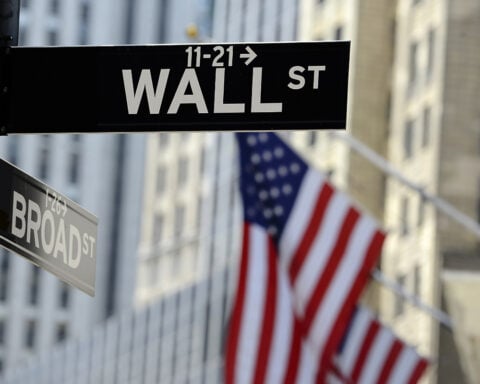Wall Street seems set to end the week with a first loss in the past six weeks, following another fall in stocks on Friday.
The S&P 500 experienced a 0.6% decrease during the morning trade, extending its drop from last week when it achieved its highest level in over a year. By 10:20 a.m. Eastern time, the Dow Jones Industrial Average had dropped 175 points or 0.5% to 33,770, while the Nasdaq composite fell by 0.9%.
Stocks experienced sharper declines in overseas markets, alongside crude oil prices, which fell due to concerns that a potential global recession could reduce fuel consumption.
According to a preliminary report, Europe’s economy seems weaker than anticipated, factoring into the market apprehension experienced this week. This nervousness has been fuelled by central banks worldwide cranking up interest rates to manage rising inflation. High rates slow the economy to suppress inflation, increasing the likelihood of a recession.
High U.S. interest rates have already forced contraction in manufacturing and other sectors and contributed to several banking system failures, causing a dent in confidence. Despite not raising rates last week, Jerome Powell, Federal Reserve Chair, announced the possibility of a few more increases by year’s end.
Some critics argue that the U.S. stock market’s dramatic ascent, with a rally of more than 20% since mid-October, was overdue for a pause. Despite rapid rate hikes since early 2022, the U.S. economy has successfully averted a recession, with the job market showing impressive resilience.
Many Wall Street investors have held onto hopes that slowing inflation could persuade the Fed to moderate rate hikes. At the same time, a select group of stocks experienced phenomenal growth due to the hype surrounding artificial intelligence technology.
However, Wall Street traders may still underestimate the Fed’s determination, according to economist Ethan Harris in a BofA Global Research report. Harris noted that the focus has shifted from avoiding recession to aggressively combatting persistent inflation.
On Friday, a preliminary report suggested the overall U.S. economy continues to expand, despite a shrinking manufacturing sector and output falling to a five-month low.
Chris Williamson, a chief business economist at S&P Global Market Intelligence, questioned the sustainability of service sector growth in light of the manufacturing decline and the after-effects of previous rate hikes.
A sluggish economy would likely lead to reduced energy demand. Consequently, a barrel of benchmark U.S. oil fell 1.7% to $68.36. This decrease contributed to substantial losses in energy stocks on Wall Street, including a 2.2% loss for Halliburton.
Technology companies also suffered significant blows, with Microsoft and Tesla’s shares dropping 1.2% and 3.8%, respectively. This weighed heavily on the S&P 500, as higher interest rates negatively impact all forms of investment, particularly high-growth stocks.
On a positive note, CarMax saw a 9.1% increase in their stocks after reporting a higher profit for the latest quarter than analysts anticipated.
In European markets, Germany’s DAX and France’s CAC 40 fell by 1% and 0.6%, respectively, while the FTSE 100 in London slipped by 0.5%. The Bank of England’s decision to increase its primary interest rate to a 15-year high marked its 13th consecutive hike. Central banks in Norway, Switzerland, and Turkey followed suit.
Hong Kong’s Hang Seng and Japan’s Nikkei 225 dropped by 1.7% in Asia. After Japan’s inflation rate came in above expectations, there is speculation that its central bank may revise its ultra-low interest rate policies.
In the bond market, investors sought safer investment options amid economic concerns, leading to a drop in yields. The yield on the 10-year Treasury declined from 3.79% to 3.73%. This change influences rates for mortgages and other significant loans.
The shifts in global markets and inflation rates present a complex and uncertain economic landscape. This fluctuating scenario is proving challenging for both businesses and investors. Global economic tremors are being felt on Wall Street, underscoring the interconnectedness of the world’s financial markets. With the high stakes game of interest rates, the balancing act between inflation control and economic growth continues to be a critical focus. Market players will undoubtedly keep a keen eye on central bank decisions, energy prices, and global economic indicators in the future.







